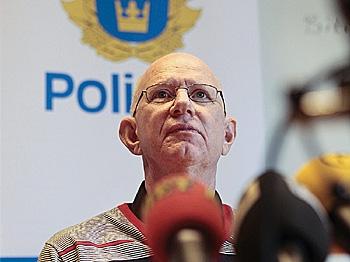The Serbian Parliament on March 30 adopted a declaration condemning the massacre of Bosnians in Srebrenica in July 1995. The move, although long overdue and downplayed, is a step toward coming to terms with one of the most horrendous crimes of modern times.
The ethnic cleansing of Bosnian Muslims in Srebrenica rampaged to a climax in July 1995, toward the end of the 1992–1995 Bosnia-Herzegovina wars. Serb forces separated civilian men from women and killed thousands of men and boys. Those who attempted to escape were hunted down in the forests, according to a study by Gendercide Watch, a Canadian-based organization that monitors atrocities associated with gender issues.
On March 31, the European Commission welcomed the Serbian declaration, stating that it is not only important for Serbia but is also key for reconciliation in the Balkan region.
In a joint statement, European Union High Representative for Foreign Affairs and Security Policy Catherine Ashton and EU Commissioner Stefan Fule said that it is essential for Serbian society to face its past.
In 2004, the International Criminal Tribunal for former Yugoslavia ruled that the crimes committed at Srebrenica were an act of genocide. In February 2007, the International Court of Justice came to the same conclusion.
The Serbs have been reluctant to accept the verdict of the international community. Therefore, the declaration last week was welcomed as an important step forward.
The Srebrenica Declaration condemns the crime committed, expresses condolences and apologies to families of victims. In addition, it states that the Serbian Parliament supports the ongoing Hague tribunal in locating and arresting Ratko Mladic, the former commander of the Serb army and one of the major figures responsible for the massacre.
The ethnic cleansing of Bosnian Muslims in Srebrenica rampaged to a climax in July 1995, toward the end of the 1992–1995 Bosnia-Herzegovina wars. Serb forces separated civilian men from women and killed thousands of men and boys. Those who attempted to escape were hunted down in the forests, according to a study by Gendercide Watch, a Canadian-based organization that monitors atrocities associated with gender issues.
On March 31, the European Commission welcomed the Serbian declaration, stating that it is not only important for Serbia but is also key for reconciliation in the Balkan region.
In a joint statement, European Union High Representative for Foreign Affairs and Security Policy Catherine Ashton and EU Commissioner Stefan Fule said that it is essential for Serbian society to face its past.
In 2004, the International Criminal Tribunal for former Yugoslavia ruled that the crimes committed at Srebrenica were an act of genocide. In February 2007, the International Court of Justice came to the same conclusion.
The Serbs have been reluctant to accept the verdict of the international community. Therefore, the declaration last week was welcomed as an important step forward.
The Srebrenica Declaration condemns the crime committed, expresses condolences and apologies to families of victims. In addition, it states that the Serbian Parliament supports the ongoing Hague tribunal in locating and arresting Ratko Mladic, the former commander of the Serb army and one of the major figures responsible for the massacre.




